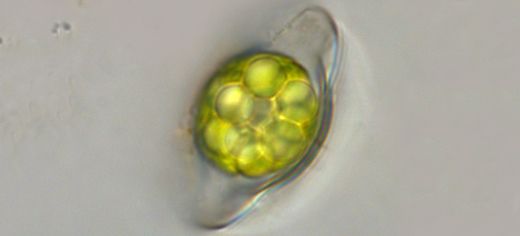
A species of alga that resembles the planet Saturn has been discovered for the first time in the British Isles.
The algal species, which is classified as 'Saturnella saturnus', was discovered by PhD student Jeannie Beadle from the School of Geography at the University of Leeds. Her research looks at pools of water created by peatland restoration measures in the Pennines, such as drain-blocking, with this particular find coming from Moor House-Upper Teesdale Nature Reserve in March 2014.
“I’m really pleased to have shown that drain-blocking is genuinely helping biodiversity. It’s evidence like this which helps land managers to justify the money spent on peatland restoration measures,” said Beadle.
After World War II, many peatlands in the UK were drained using shallow ditches with the aim of drying out the peat to make it more suitable for forestry and land grazing animals. However, the process has since been shown to be largely ineffective and also damaging to peatland ecosystems.
The blocking of drainage ditches began in the 1980s in an attempt to restore the peatlands to their former boggy state, with most of the pools being created in the last decade or so, when restoration programmes became more widespread.
Beadle concludes: “As well as looking at algae, I’ve sampled about 150 artificial pools for macroinvertebrates, which I’m currently sorting and identifying, so there may be further interesting discoveries later this year. However, I doubt any will be as beautiful as this Saturn of the Moors.”
Beadle’s research is funded by a Natural Environment Research Council (NERC) CASE partnership with the RSPB.
Further information
Jeannie Beadle is available for interview. Please contact Sarah Reed, Press Officer, University of Leeds, on 0113 34 34196 or email s.j.reed@leeds.ac.uk
Image credit: C. F. Carter